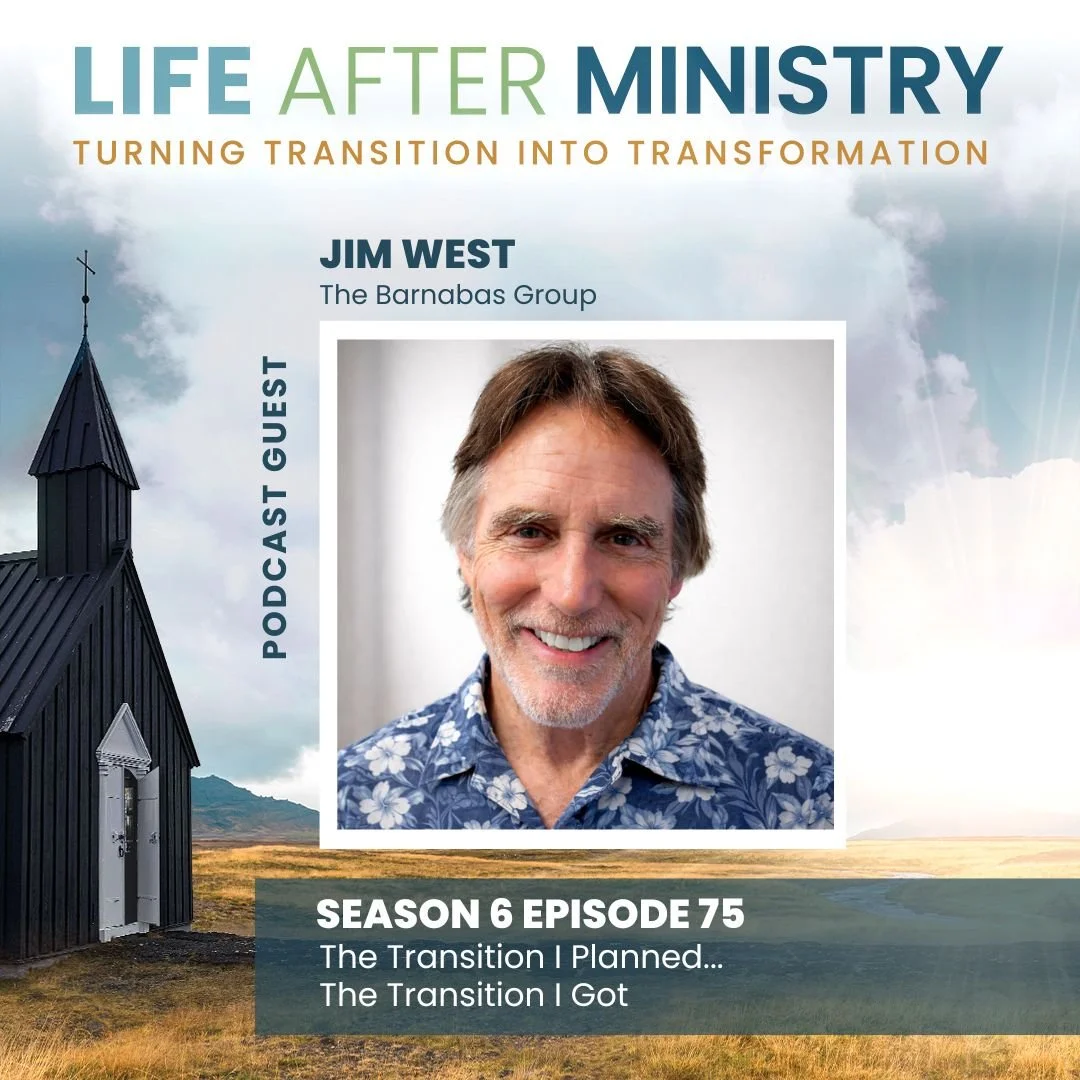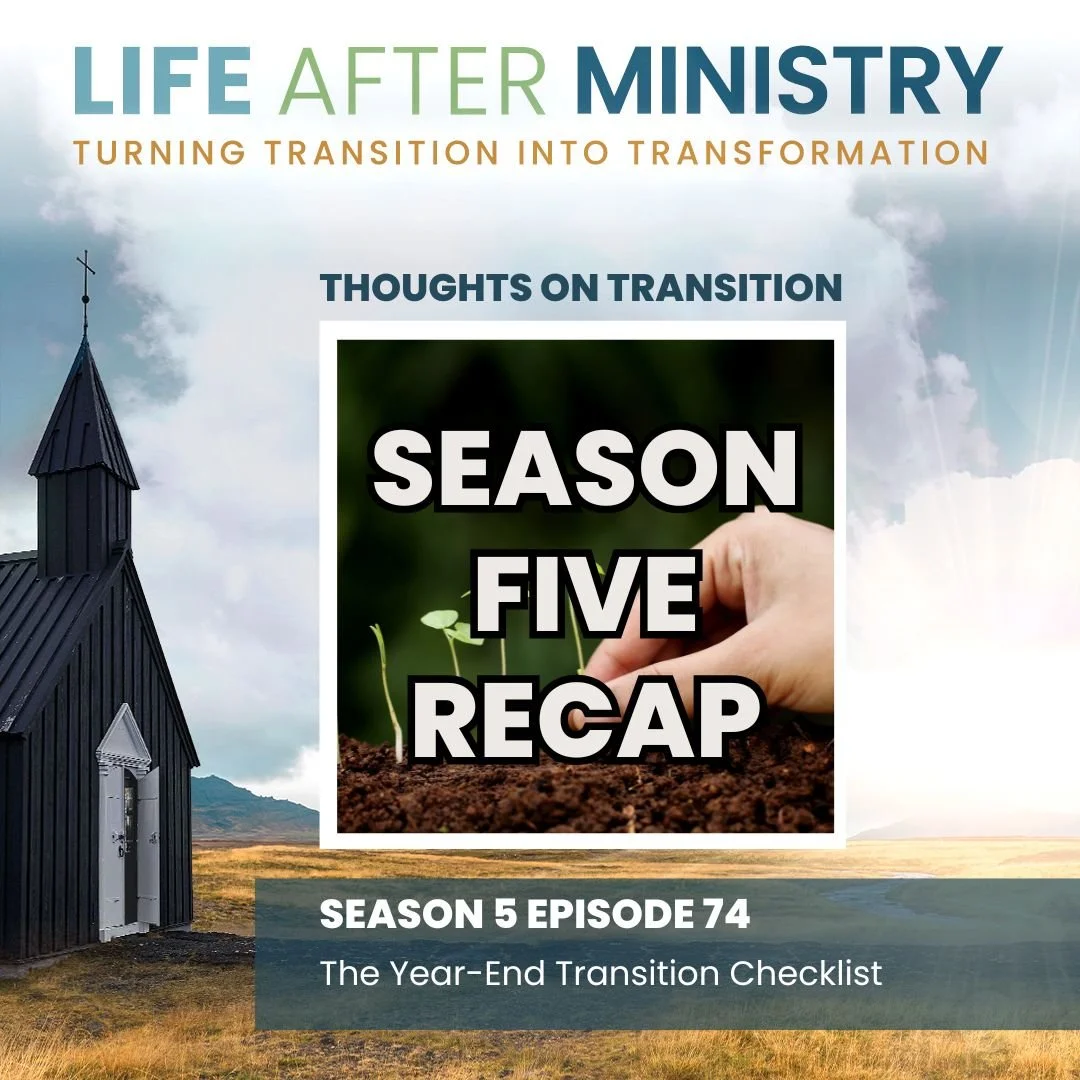A Guide to Ending Roles Without Ending Fellowship
Endings are where our theology is tested. It’s easy to preach love while onboarding. It’s harder to embody love when a role must end, budgets tighten, or a leader’s season is complete. Many ministries delay decisions out of loyalty, only to act abruptly when pressure peaks. Others default to corporate scripts that keep the organization safe but leave people bruised and distrustful.
There’s a better way - one that is biblically shaped, operationally sound, and emotionally wise.
The core conviction is simple: clarity is care. When leaders place mission and values at the center of policies and agreements, the church’s witness is strengthened, not diminished. Written clarity does not replace pastoral presence; it creates space for it. It doesn’t smother love; it steadies it.
1) Start With Theology, Not Templates
Before policies, revisit first principles. Scripture situates leadership in service, mutual submission, and truth-telling. Jesus’ new command - “Love one another, just as I have loved you” (John 13:34-35) - doesn’t evaporate when employment ends. Paul’s counsel on resolving disputes within the body (1 Corinthians 6:1-5) assumes that Christians can pursue just outcomes without harming their witness. Policies and agreements should be written to help your community live these texts, not sidestep them.
Draft employment practices that explicitly reference your mission, statement of faith, and values. If your church emphasizes reconciliation, show how that conviction appears in your performance conversations and separation processes. If you claim to be family, specify how family speaks the truth, documents decisions, and provides care at exit. Without translation into process, convictions become slogans.
2) Normalize Succession as Discipleship
One reason endings turn chaotic is that we pretend they won’t happen. In reality, every role is interim. Wise leaders make that explicit. From day one, talk about seasons, trajectories, and handoffs. Ask candidates, “If God moved you in three to five years, where might he be leading you? How could we prepare you - and the church - for that possibility?”
This isn’t distrust. It’s stewardship. Normalizing transition timelines makes space for coaching, shared leadership, and documented responsibilities. It helps boards evaluate fit, reduce overreliance on a single personality, and mitigate crisis if health, family, or calling requires a change. Succession isn’t just for senior pastors; it applies across staff layers and key volunteer leadership.
3) Put It in Writing - With Pastoral Tone
Some fear that written agreements feel unspiritual. But covenantal clarity runs through Scripture. Written expectations protect both sides from selective memory and future hurt. Offer role descriptions that name mission-critical outcomes, cultural behaviors, theological expectations, and how feedback happens. Build in rhythms: quarterly dialogues, annual reviews, and mid-stream recalibration when circumstances shift.
When separation becomes necessary, use documents that are precise and humane. A severance agreement, for example, should plainly outline compensation, benefits, reference language where appropriate, return of property, and any mutual confidentiality or non-disparagement. “Mutual” matters. Guard against clauses that would unlawfully suppress reporting of discrimination, harassment, or criminal behavior. The goal is to limit confusion, not the truth.
Language and tone matter. Choose clear, everyday words over jargon. Offer space for questions. Share drafts, allow time for counsel, and name the intent: to honor the individual, reduce ambiguity, and bless the church.
4) Clarify the Role of Confidentiality and NDAs
Confidentiality is not a four-letter word. Sometimes it’s the wise boundary that keeps gossip from escalating pain. Often ministries blend two ideas: confidentiality regarding the agreement’s financial terms and non-disparagement regarding public comments. Mutual versions of these can serve both parties.
What should be avoided are clauses - now restricted in many jurisdictions - that prevent someone from speaking about alleged unlawful conduct. Ministries must never use paperwork to hide sin or silence victims. If wrongdoing is alleged, report to authorities as required, engage third-party assessment, and communicate with integrity. Use discretion, not deception.
5) Choose Christian Conciliation When Possible
When trust fractures, civil court is a blunt instrument that rarely fits a church dispute. Scripture invites believers to seek wise, qualified help within the body. Christian conciliation blends peacemaking, mediation, and, when chosen, binding arbitration informed by biblical ethics. The process works best when both parties voluntarily opt in and when the conciliator understands the specific issues - whether employment, property, finance, or intellectual property.
Conciliation does not mean avoiding accountability. It means seeking a process that pursues truth, repentance, restoration where possible, and orderly separation where necessary, without destroying a congregation’s witness.
6) Involve Counsel Early, Not at the Last Minute
The worst time to write your policy is on the eve of a termination. Engage experienced counsel during calmer seasons. Ask them to help translate your theology into coherent documents: bylaws, employment agreements for key roles, staff handbook, grievance pathways, and a board playbook for investigations and separations. Early clarity is cheaper than late conflict.
Counsel should be a guide, not a driver. You supply mission and values; they supply precision and foresight. The best language is the kind that a future elder, not present today, can read and follow without guessing your intent.
7) Shepherd the Culture Through the Exit
How you say goodbye teaches everyone what to expect when their season ends. Even when financial realities force quick timelines, the posture can be pastoral. Communicate with the person directly, in person. Provide context without oversharing. Offer next-step support - interview coaching, a gracious reference when appropriate, and a clear path for handing off responsibilities.
Address the team. Honor contributions. Name what you can name. Set expectations for questions. Then watch the culture. Rumors fill vacuums. When leaders communicate consistently and kindly, trust grows, even in grief.
8) A Practical Checklist for Ending Well
Roles and expectations documented and revisited regularly
Board alignment on theology of leadership, discipline, and transition
Confidential reporting pathways and third-party options
Early legal review of key agreements, especially for senior roles
Separation playbook with timelines, scripts, and care steps
Decision log for major actions and rationale
A commitment to consider Christian conciliation before civil court
9) Two Scriptures for the Road
“By this all people will know that you are my disciples, if you have love for one another.” (John 13:35)
Love is not sentimental. In transitions, love is truthful, patient, accountable, and protective of the vulnerable.
“If any of you has a dispute with another, do you dare take it before the ungodly for judgment instead of before the Lord’s people?” (1 Corinthians 6:1)
Paul’s challenge is not naïve; it’s formative. Seek wise, skilled help within Christ’s body so that justice and witness move together.
Conclusion: Clarity That Heals
Endings don’t have to scorch earth. When ministries anchor decisions in theology, normalize succession, write with dignity, steward confidentiality, seek conciliation, and invite counsel early, people feel seen - even when they’re being released. The mission continues with integrity. And the church’s witness shines in the moment it is most scrutinized.
If you’re facing a hard decision or reeling from one, you don’t have to navigate alone. For confidential guidance and practical tools tailored to your context, explore resources at MinistryTransitions.com and consider scheduling a conversation. Clarity is care, and care is the way of Christ.
With 25+ years in faith-based executive leadership, Matt Davis knows the wins, the losses, and everything in between. As Executive Pastor, he led a team of 140+, tackling the challenges that come with big vision and real impact. As President of Ministry Transitions, he guides churches through tough leadership changes. Matt and his wife, Marilee, host the Life After Ministry Podcast, where they dive into real talk with former pastors who’ve found their kingdom assignment beyond church walls - unfiltered stories of grit, growth, and God’s purpose beyond the pulpit.







